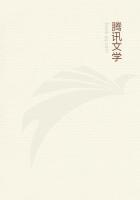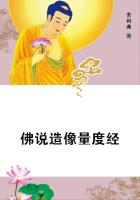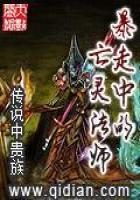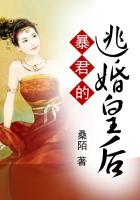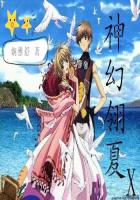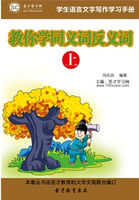WHEN the head was considered so sacred that it might not even be touched without grave offence, it is obvious that the cutting of the hair must have been a delicate and difficult operation. The difficulties and dangers which, on the primitive view, beset the operation are of two kinds. There is first the danger of disturbing the spirit of the head, which may be injured in the process and may revenge itself upon the person who molests him. Secondly, there is the difficulty of disposing of the shorn locks. For the savage believes that the sympathetic connexion which exists between himself and every part of his body continues to exist even after the physical connexion has been broken, and that therefore he will suffer from any harm that may befall the several parts of his body, such as the clippings of his hair or the parings of his nails. Accordingly he takes care that these severed portions of himself shall not be left in places where they might either be exposed to accidental injury or fall into the hands of malicious persons who might work magic on them to his detriment or death. Such dangers are common to all, but sacred persons have more to fear from them than ordinary people, so the precautions taken by them are proportionately stringent. The simplest way of evading the peril is not to cut the hair at all; and this is the expedient adopted where the risk is thought to be more than usually great. The Frankish kings were never allowed to crop their hair; from their childhood upwards they had to keep it unshorn. To poll the long locks that floated on their shoulders would have been to renounce their right to the throne. When the wicked brothers Clotaire and Childebert coveted the kingdom of their dead brother Clodomir, they inveigled into their power their little nephews, the two sons of Clodomir; and having done so, they sent a messenger bearing scissors and a naked sword to the children's grandmother, Queen Clotilde, at Paris. The envoy showed the scissors and the sword to Clotilde, and bade her choose whether the children should be shorn and live or remain unshorn and die. The proud queen replied that if her grandchildren were not to come to the throne she would rather see them dead than shorn. And murdered they were by their ruthless uncle Clotaire with his own hand. The king of Ponape, one of the Caroline Islands, must wear his hair long, and so must his grandees. Among the Hos, a negro tribe of West Africa, there are priests on whose head no razor may come during the whole of their lives. The god who dwells in the man forbids the cutting of his hair on pain of death. If the hair is at last too long, the owner must pray to his god to allow him at least to clip the tips of it. The hair is in fact conceived as the seat and lodging-place of his god, so that were it shorn the god would lose his abode in the priest. The members of a Masai clan, who are believed to possess the art of making rain, may not pluck out their beards, because the loss of their beards would, it is supposed, entail the loss of their rain-making powers. The head chief and the sorcerers of the Masai observe the same rule for a like reason: they think that were they to pull out their beards, their supernatural gifts would desert them.
Again, men who have taken a vow of vengeance sometimes keep their hair unshorn till they have fulfilled their vow. Thus of the Marquesans we are told that occasionally they have their head entirely shaved, except one lock on the crown, which is worn loose or put up in a knot. But the latter mode of wearing the hair is only adopted by them when they have a solemn vow, as to revenge the death of some near relation, etc. In such case the lock is never cut off until they have fulfilled their promise. A similar custom was sometimes observed by the ancient Germans; among the Chatti the young warriors never clipped their hair or their beard till they had slain an enemy. Among the Toradjas, when a child's hair is cut to rid it of vermin, some locks are allowed to remain on the crown of the head as a refuge for one of the child's souls. Otherwise the soul would have no place in which to settle, and the child would sicken. The Karo-Bataks are much afraid of frightening away the soul of a child; hence when they cut its hair, they always leave a patch unshorn, to which the soul can retreat before the shears. Usually this lock remains unshorn all through life, or at least up till manhood.
7. Ceremonies at Hair-cutting.
BUT when it becomes necessary to crop the hair, measures are taken to lessen the dangers which are supposed to attend the operation. The chief of Namosi in Fiji always ate a man by way of precaution when he had had his hair cut.
There was a certain clan that had to provide the victim, and they used to sit in solemn council among themselves to choose him. It was a sacrificial feast to avert evil from the chief. Amongst the Maoris many spells were uttered at hair-cutting; one, for example, was spoken to consecrate the obsidian knife with which the hair was cut; another was pronounced to avert the thunder and lightning which hair-cutting was believed to cause. He who has had his hair cut is in immediate charge of the Atua (spirit); he is removed from the contact and society of his family and his tribe; he dare not touch his food himself; it is put into his mouth by another person; nor can he for some days resume his accustomed occupations or associate with his fellow-men. The person who cuts the hair is also tabooed; his hands having been in contact with a sacred head, he may not touch food with them or engage in any other employment; he is fed by another person with food cooked over a sacred fire.

